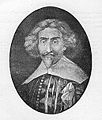Wikipedia:Selected anniversaries/January 16
This is a list of selected January 16 anniversaries that appear in the "On this day" section of the Main Page. To suggest a new item, in most cases, you can be bold and edit this page. Please read the selected anniversaries guidelines before making your edit. However, if your addition might be controversial or on a day that is or will soon be on the Main Page, please post your suggestion on the talk page instead.
Please note that the events listed on the Main Page are chosen based more on relative article quality and to maintain a mix of topics, not based solely on how important or significant their subjects are. Only four to five events are posted at a time and thus not everything that is "most important and significant" can be listed. In addition, an event is generally not posted this year if it is also the subject of the scheduled featured article or picture of the day.
To report an error when this appears on the Main Page, see Main Page errors. Please remember that this list defers to the supporting articles, so it is best to achieve consensus and make any necessary changes there first.
| ← January 15 | January 17 → |
|---|
Images
Use only ONE image at a time
-
Emperor Augustus
-
Ivan IV of Russia
-
Miguel de Cervantes
-
Miguel de Cervantes
-
Ivan IV of Russia ("Ivan the Terrible")
Ineligible
| Blurb | Reason |
|---|---|
| National Religious Freedom Day in the United States | stub |
| 929 – Emir Abd-ar-Rahman III of Cordoba declared himself caliph, thereby establishing the Caliphate of Córdoba. | refimprove section |
| 1120 – The Council of Nablus was held, establishing the earliest surviving written laws of the Crusader Kingdom of Jerusalem. | {{Refimprove}} |
| 1547 – Ivan the Terrible was crowned the first Tsar of Russia at the age of 16. | tagged for expansion |
| 1605 – Book One of Don Quixote, El ingenioso hidalgo Don Quijote de la Mancha by Miguel de Cervantes, was first published in Madrid, Spain. | unreferenced section |
| 1917 – World War I: The German Empire sent the Zimmermann Telegram, a diplomatic proposal to Mexico to make war against the United States, which led in part to the U.S. entering the war. | refimprove section |
| 1986 – The Internet Engineering Task Force, a standards organization that develops and promotes Internet standards, held its first meeting, consisting of twenty-one United States-government-funded researchers. | {{more footnotes}} |
| 1991 – The Gulf War began as a United Nations-led coalition began an assault on Iraqi forces to free Kuwait. | unreferenced section, more globalization |
| 1992 – The Chapultepec Peace Accords were signed, ending the 12-year Salvadoran Civil War between the military-led government of El Salvador and the Farabundo Martí National Liberation Front. | {{ibid}} |
Eligible
- 1780 – American Revolutionary War: The British Royal Navy gained their first major naval victory over their European enemies in the war when they defeated a Spanish squadron in the Battle of Cape St. Vincent.
- 1920 – The League of Nations held its first council meeting in Paris.
- 1942 – TWA Flight 3 crashed into Potosi Mountain in Nevada, killing actress Carole Lombard and all of the other 21 people on board.
- 1969 – Student Jan Palach set himself on fire in Wenceslas Square in Prague as a protest against the Soviet invasion of Czechoslovakia the previous year.
- 2008 – Five days after proposing lyrics for the wordless Marcha Real, the Spanish national anthem, the Spanish Olympic Committee withdrew the proposal due to widespread criticism.
Notes
- Second Battle of the Corunna Road appears on January 15, so Battle of Corunna should not appear in the same year to avoid confusion
January 16: Teachers' Day in Thailand
- 27 BC – Gaius Octavianus was given the title Augustus by the Roman Senate when he became the first Roman emperor.
- 1809 – Peninsular War: French forces under Nicolas Jean de Dieu Soult attacked the amphibious evacuation of the British under Sir John Moore in Corunna, Galicia, Spain.
- 1919 – The Eighteenth Amendment to the U.S. Constitution was ratified by thirty-six of the forty-eight states, establishing the prohibition of alcoholic beverages in the United States.
- 1938 – Benny Goodman (pictured) performed a concert at New York City's Carnegie Hall which has been considered instrumental in establishing jazz as a legitimate form of music.
- 1945 – World War II: Adolf Hitler and his staff moved into the Führerbunker, where he would eventually commit suicide.






